- Christopher Lee is Ian Fleming’s cousin.
- £12.12s.8d = 12128 farthings
- ii is real.
- Shouldn’t Juliet have asked, “Wherefore art thou Montague?”
- “Of soup and love, the first is the best.” — Thomas Fuller
Literature
First and Last
As the computer HAL is being shut down in 2001: A Space Odyssey, it begins singing the song “Daisy Bell”:
Daisy, Daisy, give me your answer do,
I’m half crazy, all for the love of you.
It won’t be a stylish marriage–
I can’t afford a carriage–
But you’ll look sweet upon the seat
Of a bicycle built for two.
That’s poetic, in a way. During a visit to Bell Labs in 1961, novelist Arthur C. Clarke had witnessed the first singing computer — physicist John Kelly had programmed an IBM 704 to sing using a speech synthesizer.
The song it sang was “Daisy Bell.”
False Father
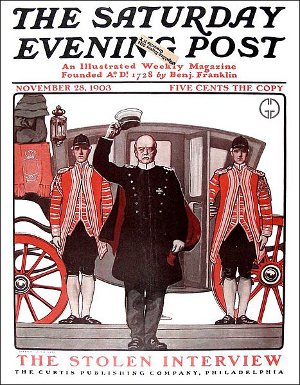
For more than a century, the cover of the Saturday Evening Post claimed that it was “founded in A.D. 1728 by Benj. Franklin.”
This has never been true. Franklin died in 1790, and his Pennsylvania Gazette ceased publication in 1815. The Post did not appear until six years later, and it proclaimed itself “Founded, A.D. 1821” for the next 77 years, until publisher Cyrus H.K. Curtis acquired it in 1897.
Only then did the reference to Franklin appear — apparently based solely on the fact that the Post had been launched in the same building that had once housed Franklin’s newspaper.
Condensed Fiction

At 503 words, this is the shortest Sherlock Holmes story that Arthur Conan Doyle ever wrote. It was inscribed in a book 1.5″ high and contributed to the library of a dollhouse built for Queen Mary, the wife of George V:
How Watson Learned the Trick
Watson had been watching his companion intently ever since he had sat down to the breakfast table. Holmes happened to look up and catch his eye.
‘Well, Watson, what are you thinking about?’ he asked.
‘About you.’
‘Me?’
‘Yes, Holmes. I was thinking how superficial are these tricks of yours, and how wonderful it is that the public should continue to show interest in them.’
‘I quite agree,’ said Holmes. ‘In fact, I have a recollection that I have myself made a similar remark.’
‘Your methods,’ said Watson severely, ‘are really easily acquired.’
‘No doubt,’ Holmes answered with a smile. ‘Perhaps you will yourself give an example of this method of reasoning.’
‘With pleasure,’ said Watson. ‘I am able to say that you were greatly preoccupied when you got up this morning.’
‘Excellent!’ said Holmes. ‘How could you possibly know that?’
‘Because you are usually a very tidy man and yet you have forgotten to shave.’
‘Dear me! How very clever!’ said Holmes. ‘I had no idea, Watson, that you were so apt a pupil. Has your eagle eye detected anything more?’
‘Yes, Holmes. You have a client named Barlow, and you have not been successful with his case.’
‘Dear me, how could you know that?’
‘I saw the name outside his envelope. When you opened it you gave a groan and thrust it into your pocket with a frown on your face.’
‘Admirable! You are indeed observant. Any other points?’
‘I fear, Holmes, that you have taken to financial speculation.’
‘How could you tell that, Watson?’
‘You opened the paper, turned to the financial page, and gave a loud exclamation of interest.’
‘Well, that is very clever of you, Watson. Any more?’
‘Yes, Holmes, you have put on your black coat, instead of your dressing gown, which proves that your are expecting some important visitor at once.’
‘Anything more?’
‘I have no doubt that I could find other points, Holmes, but I only give you these few, in order to show you that there are other people in the world who can be as clever as you.’
‘And some not so clever,’ said Holmes. ‘I admit that they are few, but I am afraid, my dear Watson, that I must count you among them.’
‘What do you mean, Holmes?’
‘Well, my dear fellow, I fear your deductions have not been so happy as I should have wished.’
‘You mean that I was mistaken.’
‘Just a little that way, I fear. Let us take the points in their order: I did not shave because I have sent my razor to be sharpened. I put on my coat because I have, worse luck, an early meeting with my dentist. His name is Barlow, and the letter was to confirm the appointment. The cricket page is beside the financial one, and I turned to it to find if Surrey was holding its own against Kent. But go on, Watson, go on! It ‘s a very superficial trick, and no doubt you will soon acquire it.’
J.M. Barrie, Thomas Hardy, Rudyard Kipling, and Somerset Maugham also contributed volumes for the dollhouse, which is still on display at Windsor Castle. George Bernard Shaw declined to participate.
Gumshoe Polish
In 1930 Dashiell Hammett reviewed mystery fiction for the New York Evening Post. Dismayed at the blunders he encountered, he published 24 “suggestions that might be of value to somebody.” Excerpts:
- The Colt’s .45 automatic pistol has no chambers. The cartridges are put in a magazine.
- When a bullet from a Colt’s .45, or any firearm of approximately the same size and power, hits you, even if not in a fatal spot, it usually knocks you over. It is quite upsetting at any reasonable range.
- When you are knocked unconscious you do not feel the blow that does it.
- Fingerprints of any value to the police are seldom found on anybody’s skin.
- Not nearly so much can be seen by moonlight as you imagine. This is especially true of colors.
- Ventriloquists do not actually “throw” their voices and such doubtful illusions as they manage depend on their gestures. Nothing at all could be done by a ventriloquist standing behind his audience.
- Even detectives who drop their final g’s should not be made to sayin “anythin'” — an oddity that calls for vocal acrobatics.
- “Youse” is the plural of “you.”
- A lawyer cannot impeach his own witness.
Also: “A trained detective shadowing a subject does not ordinarily leap from doorway to doorway and does not hide behind trees and poles. He knows no harm is done if the subject sees him now and then.”
Deeds and Words
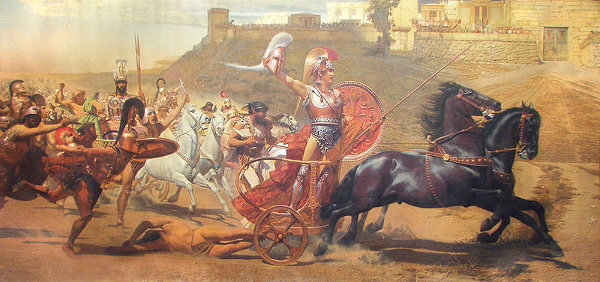
“‘There really are fictional heroes’ sounds true, but ‘Fictional heroes really exist’ sounds false.”
— James Cargile, Paradoxes, 1979
The Price of Fame
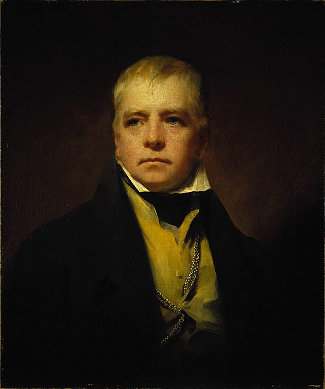
[Walter Scott] was scrupulously careful … to answer all letters addressed to him. In those days of high postage this was a tax not only on his time and his temper, but on his purse as well. He spent as much as one hundred and fifty pounds a year in postage. Once a mighty package came from the United States. Five pounds were due on it. When opened it was found to contain a manuscript called ‘The Cherokee Lovers,’ a drama written by a New York lady, who begged Scott to read and correct it, write a prologue and an epilogue, and secure a manager and a publisher. A fortnight later another package of similar size, charged with a similar postage, was placed in Scott’s hands. When opened, out popped another copy of ‘The Cherokee Lovers,’ with a note from the authoress explaining that, as the mails were uncertain, she had deemed it prudent to forward a duplicate.
— William Shepard Walsh, Handy-Book of Literary Curiosities, 1892
Lear in Limericks
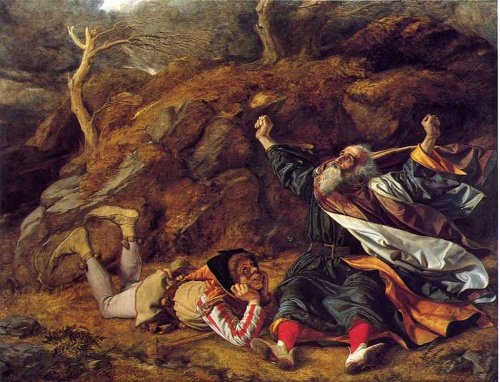
GONERIL/REGAN: Pop’s tops!
LEAR: True Cordelia?
CORDELIA: Oh, Dad!
LEAR: I banish you!
KENT: Gad!
LEAR: Vanish!
FOOL: Mad!
Believe me, these sisters
Deceive you.
LEAR: The twisters!
GLOUCESTER: And my boy’s a bastard.
EDMUND: Too bad.
EDGAR: I’m disguised. Tom’s a fruitcake.
LEAR: Me too!
GONERIL/REGAN: Prise those eyes out.
GLOUCESTER: I’m blinded! Boo-hoo!
EDMUND: I fix my own odds.
GLOUCESTER: The gods are such sods.
EDGAR: No they’re not. Jump! All right!
GLOUCESTER: And that’s true.
REGAN: My hubby’s just snuffed it. To bed!
EDMUND: My lady?
GONERIL: He’s mine!
ALBANY: You’re still wed.
LEAR: The law is an ass;
Forgive me, my lass.
CORDELIA: Of course!
REGAN: Ugh!
GONERIL: Agh!
EDMUND: Oogh!
ALBANY: They’re all dead!
Good old gods! Three cheers!
KENT: I feel queer!
LEAR: She’s dead. Howl. Fool. Gurgle.
ALBANY: Oh dear!
KENT: He’s dead and I’m dying.
EDGAR: It’s time to start crying;
I’m king. That’s your lot. Shed a tear.
— Bill Greenwell
See GRKTRGDY.
Unquote
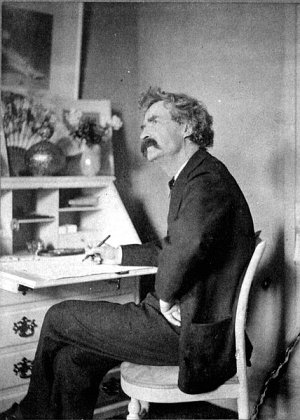
“My books are water; those of the great geniuses are wine. Everybody drinks water.” — Mark Twain
Misc

- Tarzan’s yell is an aural palindrome.
- CONTAMINATED is an anagram of NO ADMITTANCE.
- The Swiss Family Robinson have no surname (“Robinson” refers to Robinson Crusoe).
- x2 – 2999x + 2248541 produces 80 primes from x = 1460 to 1539.
- “A great fortune is a great slavery.” — Seneca
